Film reveals residential school experience of respected Mi'kmaw leader
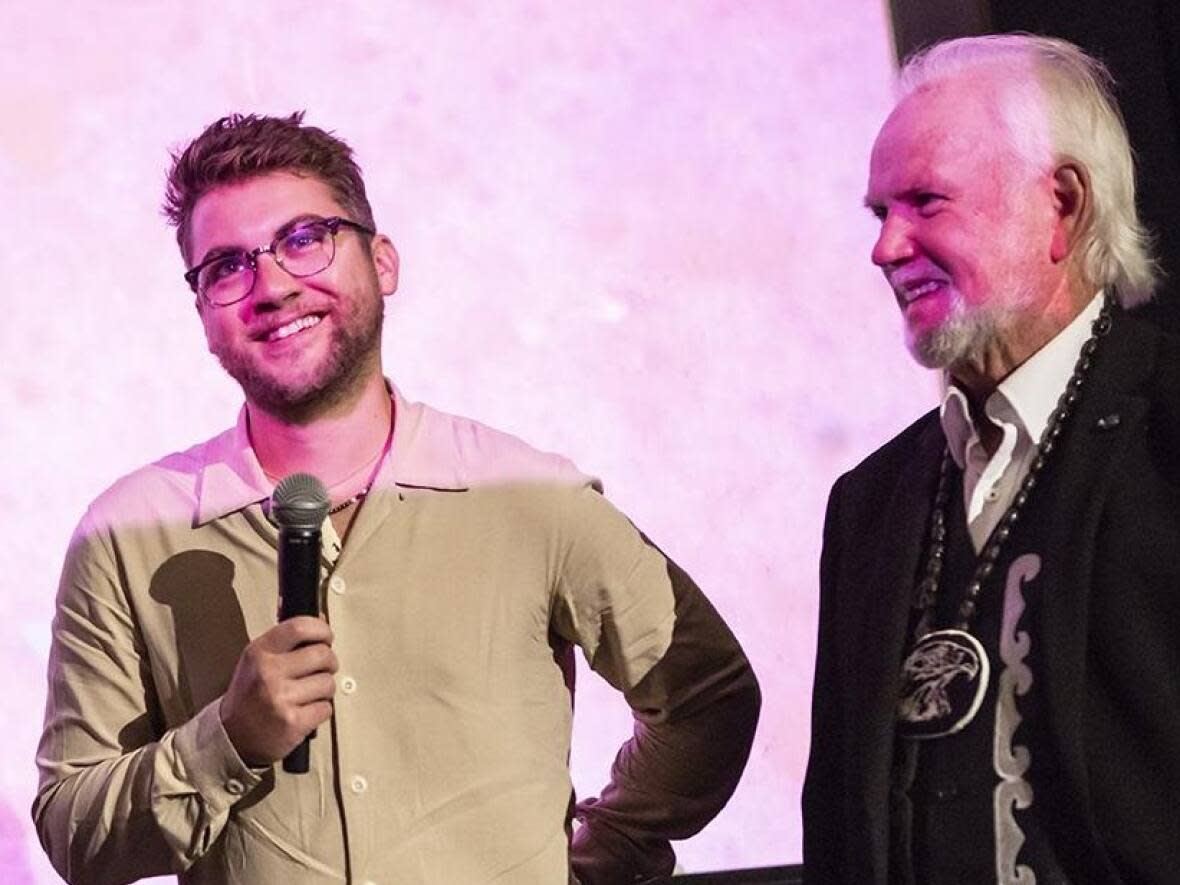
A film about the life of a nationally respected leader from the Mi'kmaw community of Natoaganeg, also known as Eel Ground, screens Sunday night at the Silver Wave Film Festival in Fredericton.
You can call me Roger tells the story of Elder Roger Augustine and his climb to leadership positions over a 46-year period, said director Jon Mann.
"I think Roger's message throughout … not just this film, but his entire career, has been all about peace and friendship."
"His hand has been outreached in this relationship his entire life, and all he wants is for everybody else to reach back."
Augustine recently retired as regional chief for New Brunswick and Prince Edward Island with the Assembly of First Nations.
A few highlights from the 75-year-old's lengthy resumé include co-founding North Shore and Atlantic political groups for First Nations chiefs, being a signatory to the 1981 Declaration of Aboriginal and Treaty Rights, introducing drug and alcohol education curriculum, negotiating a partnership with lumber companies and mediating several crises, including fisheries disputes in Esgenoopetitj and Elsipogtog.
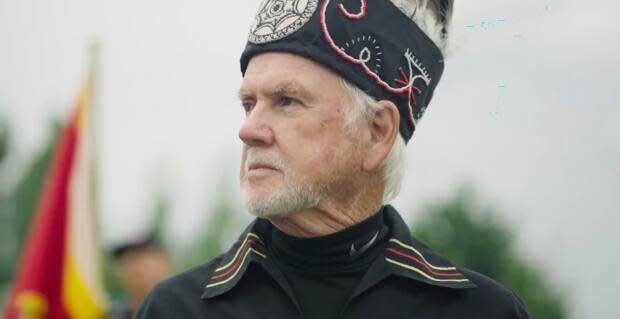
But this film will tell a version of his life story that people are less familiar with — including himself.
"I never really thought that I had a story and now, here it is," said Augustine.
"Roger was so brutally honest about his experiences, good and bad," said Mann — including how he ran away from the residential school in Shubenacadie, N.S.
Augustine said he was reluctant about doing the film, but his daughter-in-law and grandchildren talked him into it and he's really impressed with how it turned out.
He hopes the film will "give opportunities to others who have stories to tell and encouragement to other men who are afraid to reveal the real stories of their lives."
Then he hopes they'll be able to "move on."
People are still hurting a great deal, he said.
"The harm that these schools did … it's incredible."
Augustine's friends from coast to coast were eager to take part in the film, said Mann.
"Everybody wanted to lend their voice to Chief Roger's story. He has such an imprint, both professionally and personally, on so many lives across this country."
A tie that binds them, in Mann's view, is resiliency.
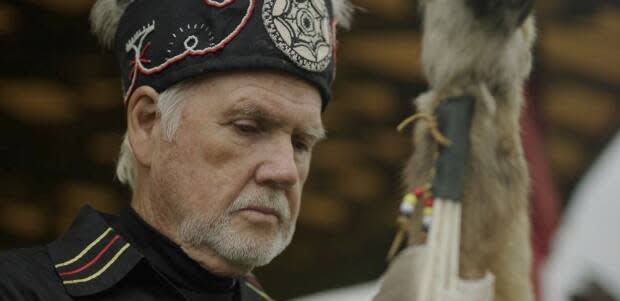
He asked each of the 18 people he interviewed what keeps them going in the face of weekly "gut punches" — from the challenges of trying to restore the pre-colonial name of a river to discoveries of dead children in unmarked graves at residential schools.
The resounding reply was, "Well, what am I supposed to do? Roll over and die and give up?"
"We have a long ways to go," said Augustine.
Over his political career spanning almost half a century, he hasn't seen much improvement when it comes to racism.
Reached on Friday, he recounted a story that had happened a few days earlier. A kindergarten student in Miramichi was approached by a classmate on the playground who said to their face, "Screw First Nations" — only they used a harsher word than "screw."
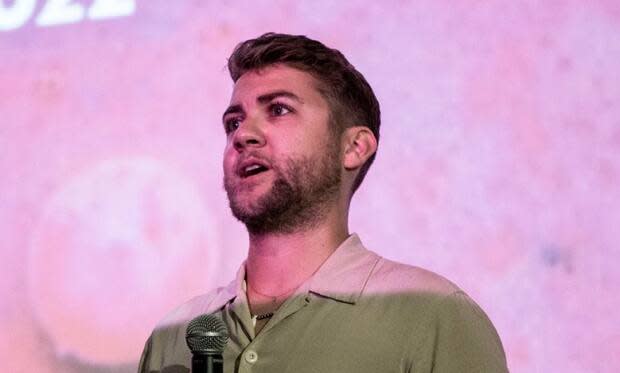
"You can't let it contaminate you," said Augustine.
"It wouldn't take much to ignite the fires."
"For those of us in the business of education and healing, our responsibility as elders and leaders is to just continue and not get discouraged."
"We know it's out there. Just show people it's not affecting you. You still enjoy the earth, wind and fire.
Augustine would like to see a day when young people are hearing fewer horror stories and more messages of pride in their Indigenous identity.
"We have a chance to look to the future and see how we can change things and support one another, talk about love, talk about honesty, humility and all the seven teachings."
Mann said he was a bit apprehensive about tackling this project as a non-Indigenous person and had awkward and enlightening moments along the way.
He sees it as part of the hard work required to repair the relationship.
"We have to start having those hard conversations," he said.
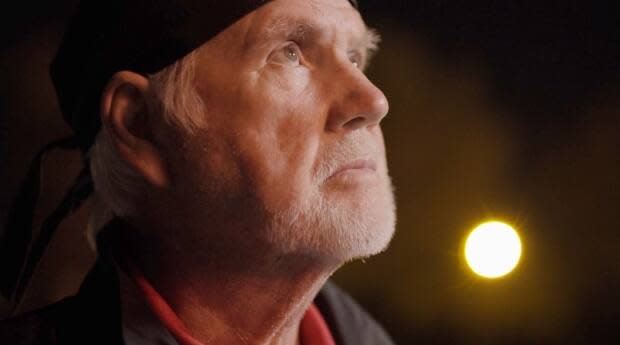
"You can't have truth and reconciliation without truth."
The film was made mainly with a non-Indigenous audience in mind.
Mann thinks the 77-minute final cut will be entertaining, engaging and educational.
The film premiered last month at the FIN Atlantic International Film Festival in Halifax.
Sunday's screening will be a bit of a homecoming for Mann.
He's originally from Fredericton, studied politics at Acadia and film at the New York Film Academy. His previous projects have included documentaries about a lockout at Moosehead Breweries and the opposition to selling NB Power to Quebec, as well an adaptation of the Stephen King short story Popsy.
His latest project was associate producing a short film called North Star, starring Emmy-nominated Colman Domingo, Kevin Bacon, and Laura Innes, from 2019 Oscar-winning producer Andrew Carlberg. It just qualified for the Academy Awards as a result of a film festival win in Georgia.
You can call me Roger is scheduled to show at 7 p.m. Sunday at Tilley Hall on the UNB Campus. Tickets are $10 for adults, $8 for seniors and students, cash only at the door. There will also be a question-and-answer session with Mann and Augustine.


